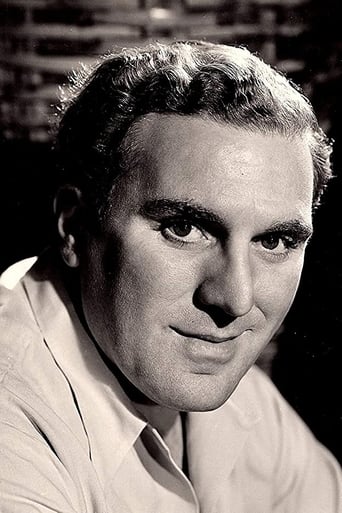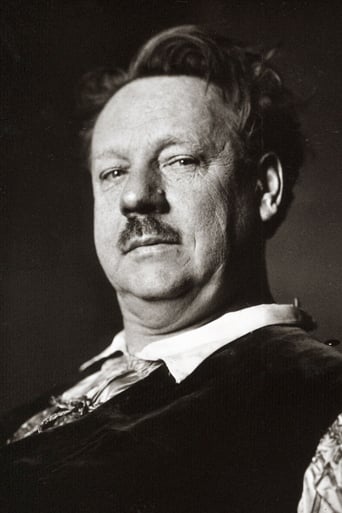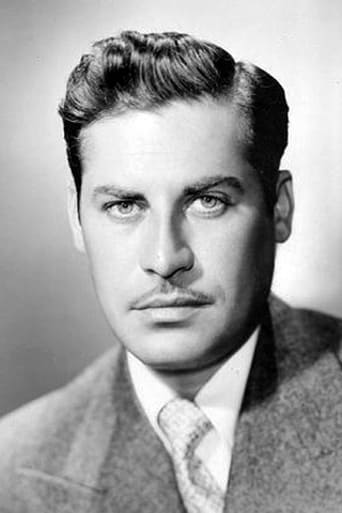GamerTab
That was an excellent one.
Steineded
How sad is this?
Chirphymium
It's entirely possible that sending the audience out feeling lousy was intentional
Haven Kaycee
It is encouraging that the film ends so strongly.Otherwise, it wouldn't have been a particularly memorable film
jacobs-greenwood
Alfred Hitchcock received his second of five unrewarded Best Director Academy Award nominations for this creative war drama that was written by John Steinbeck, who earned his first (of three unrewarded) Best Writing Oscar nomination for his Original Story. Glen MacWilliams received his only Academy recognition when his B&W Cinematography was Oscar nominated. Jo Swerling (The Pride of the Yankees (1942)) wrote the film's screenplay.The director's mastery of his craft in on full display; he challenged himself by assembling a great cast of actors to play characters from various backgrounds with differing political points of view about World War II etc. and placed them in a very limiting environment, the titled boat.Their ship had been blown out of the water by the Nazi's, and international journalist Constance 'Connie' Porter (Tallulah Bankhead) is the first to find herself safely aboard the lifeboat; she's dressed in her best jewelry and clothing and has managed to garner her most prized possessions on-board, which she loses one by one during the course of the movie. She's soon joined by millionaire industrialist Charles 'Ritt' Rittenhouse (Henry Hull), working class crew member John Kovac (John Kodiak), sailor Gus Smith (William Bendix) whose leg later has to be amputated, a Black steward named George 'Joe' Spencer (Canada Lee), a radio operator named Stanley 'Sparks' Garrett (Hume Cronyn), who has eyes for nurse Alice MacKenzie (Mary Anderson), a mother who believes the bundle she holds contains her still alive baby (Heather Angel as Mrs. Higley), and even a German U-boat captain they call Willy (Walter Slezak), who doesn't seem to understand their English language but has the ability to manage the boat.Of course, the 'passengers' debate whether to kill their enemy or not, especially as they get hungry and thirsty as the food and water run out, yet Willy seems to be doing fine rowing (and navigating the direction of) the boat. An odd couple sort of attraction develops between the rich businesswoman, Connie, and the rugged 'commie', Kovac.
blanche-2
A drama teacher once told me a personality functioning is much more interesting than an actor. We don't have personalities functioning so much anymore - the Bette Davises, the Katharine Hepburns -- but "Lifeboat" demonstrates the truth of that statement with one of the great personalities, Tallulah Bankhead.On film in the early '30s, Bankhead wasn't as effective as she is here, mainly because she played ordinary roles that anyone could have played. Here, the stunning actress plays a journalist, Constance Porter, as filtered through Tallulah -- in a mink, sitting on the boat with a typewriter, a camera, and wearing a Cartier bracelet, as she addressed everyone as "darling."Hitchcock's "Lifeboat" was a World War II film about a group of people stranded in a lifeboat after the Germans sink their ship. The stars, besides Bankhead, are John Hodiak, Hume Cronyn, William Bendix, Mary Anderson, Henry Hull, Canada Lee, and Walter Slezak as the Nazi who hitches a ride and nearly outsmarts them all - quite a statement during the war.It's a story of disparate people working together trying to survive through horrific weather conditions at times, injuries, hunger, and thirst, and then being virtually taken over by a Superman who sings in German and can row the boat, probably toward a German supply ship instead of Bermuda. "So we're all going to fold up and die," Constance says to the passengers when they have lost hope. "We not only let the Nazi do our rowing for us, but our thinking!"The acting is wonderful, from Hume Cronyn as a Cockney, Slezak as the cruel German, macho John Hodiak coming on to Constance, and beautiful Mary Anderson as a troubled young woman. Especially poignant was William Bendix's performance as Gus, a regular guy in love with a good-time girl named Rosie.A very exciting film, done in the days before special effects -- it's a tribute to Hitchcock's ingenuity.
PimpinAinttEasy
Dear Neeraj Pandey, there was a better propaganda filmmaker than you back in the 40s. His name was Alfred Hitchcock. Lifeboat is a pretty gripping and desolate propaganda film. A group of people from various strata of American society are trapped in a boat after their ship is attacked by a German boat. One of the survivors from the German boat also enters the boat of survivors. The Americans disagree on what to do with the German. Soon, the good guys win and they decide to use the German who is a navigator to take their boat to Bermuda.For a while, the focus shifts to the bickering between the working class and upper class Americans. Before the German becomes the focus again. Because while everyone is thirsty and weak, the abnormally strong German goes on rowing the boat to who knows where. The German character gets the best close up in the whole film.It is a really interesting setting with people having to get along with each other because there is nowhere to go. Apparently the whole film was shot inside a tank with a boat in it.Talluah Bankhead has some great one liners. She really stole the show. The whole cast was very impressive. Hitchcock always chooses great actors in supporting roles.There is a pretty terrible scene of mob violence in the film.But please do not remake this with Akshay Kumar in it.Best Regards, Pimpin.(7/10)
disinterested_spectator
When we find out that Gus, who loves to dance, has a wound in his leg, we know right then he is doomed. Sure enough, the leg becomes gangrenous. As it turns out, Willi was a surgeon before the war and says that he can amputate. Gus does not want to have his leg removed, because he is afraid that he will lose Rosie, the girl back home whom he loves. He fears that she might not want to marry him if he comes back without one of his legs, especially since she loves to dance as much as Gus does. To make matters worse, Gus has a rival, Al Magaroulian, whom Rosie used to date and who is also a good dancer, even though fallen arches have kept him out of the war. Gus is afraid Rosie will go back to Al if he has his leg removed. But eventually he relents, and Willi performs the surgery.Later in the movie, while everyone is sleeping lethargically from dehydration, Gus catches Willi sipping a drink of water from his flask. To keep Gus from telling the others about the water, he pushes Gus overboard. When the others awaken from hearing Gus's cries for help, they realize Gus has drowned, and they ask Willi why he didn't do something. Willi does not, of course, tell them that he pushed Gus overboard to keep him from talking. Instead, he tells them that Gus voluntarily jumped overboard and that he thought it would be best not to do anything about it, saying, "You can't imagine how painful it was to me. All night long, to watch him turning and suffering and nothing I could do for him…. The best way to help him was to let him go. I had no right to stop him, even if I wanted to. A poor cripple dying of hunger and thirst. What good could life be to a man like that?"Yes, German Nazis are evil, but are we all that good? Consider Willi's justification for letting Gus drown. The lie that Willi thinks will be an acceptable justification for "allowing" Gus to drown is actually repugnant to the other survivors, who listen to his words in horror. And we who watch this movie are likewise repulsed by Willi's callous remarks. But now let us ask ourselves why those who made this movie put this into the story. We cannot say it was to show that Willi was evil. We already knew that before he killed Gus. But if a murder was needed to really drive home the point, it was not Gus that had to be murdered. For example, it could have been Canada Lee that saw Willi sneaking a drink of water and who was then murdered by Willi and thrown overboard. Willi could then have tried to justify why he didn't save Canada by saying, "Like the Jews, Negroes are inferior. They are better off dead and the world is better off without them." That would definitely make it clear just how evil Willi is.One could come up with other ways of dramatically showing how evil Willi is, but there is no need. The point is that those who made this movie had a special reason for killing Gus off beyond making it clear that Willi was evil. They did it to make those in the audience feel better. The audience then and we today would have been uneasy if the movie had ended with Gus still alive in that lifeboat. Sure, Rosie might have not cared about Gus's leg. And she might have married him because she truly loved him. In a movie like "The Best Years of Our Lives" (1946), Hollywood could make sure that things would turn out that way. In that movie, Wilma (Cathy O'Donnell) agrees to marry Homer (Harold Russell) despite the fact that both forearms have been replaced by prostheses and despite the fact that her parents want her to break off the engagement. But in real life, we know things do not always work out that way. Rosie and Gus were not even engaged. Instead of being like Wilma, Rosie might have tried to put a good face on the situation for a couple of months and then broken up with Gus and gone back to Al Magaroulian.And so, rather than leave the audience suspecting just such an outcome for Gus and Rosie, which would have been depressing, those who made this movie killed Gus off. In this way, the audience was able to leave the theater feeling much better about the movie than if Gus had lived. You might even say that Gus's death was necessary for there to be a happy ending. But does that not imply that those who made the movie as well as those who watched it then and those of us who watch it now are essentially in agreement with Willi when he asked, "What good could life be to a man like that?"We shake our heads No. We insist that Gus could have gotten over the loss of Rosie and dancing, that he could have lived a full, rewarding life nevertheless. But if that really were the way we all feel, Gus's death would not give us a sense of relief. Those who made the movie and those of us who watch it are all complicit in wanting Gus's death so that we can all feel better.Of course, there is a big difference between committing an actual murder and merely writing a story in which a man is murdered, between saying the dead man is better off and saying that the death of that man makes the story better. And so, whereas Willi was guilty of a horrible crime, we are only guilty of liking a movie better because such a crime takes place.And yet…, and yet….







